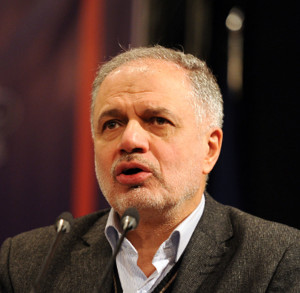June 17, 2016

The Oil Ministry announced it has named a new managing director for the National Iranian Oil Co. (NIOC), and The Wall Street Journal said the appointment reflected “tension” in the government over how to attract foreign investment to aging oilfields.
Rokneddin Javadi, NIOC’s managing director since President Rohani took office in 2013, resigned and was succeeded by Ali Kardor, who has been in charge of attracting investors.
Javadi was named deputy minister of oil in charge of supervising hydrocarbon resources, the ministry said.
The effort to issue contracts for oilfield development to major international firms has been on hold for months.
A matrix for a new form of contract, called the Iran Petroleum Contract (IPC), was drafted more than a year ago by a team in the Oil Ministry. But the draft has come under repeated questioning and still does not enjoy full approval.
As a result, the matrix has not been issued to foreign oil firms and nothing is happening at present to bring international firms into Iran’s oilfields.
Oil Minister Bijan Namdar-Zanganeh acknowledged Sunday that the contract matrix faces criticism, but he said he was optimistic the problem would be solved and the first contracts could be issued within two to three months. But Iran has never been that swift in reviewing bids and issuing contracts.
Changes in the contract language so far involve mostly “legal issues,” according to Zanganeh. The ministry removed a clause that would let the NIOC offer an alternative, similar field for exploration if a foreign company failed to make a discovery in its initial site, he said.
The text was revised to make clear domestic reserves belong to the state, Zanganeh said. That is a key issue for revolutionary ideologues. It is also a point the Oil Ministry has never questioned, suggesting that ultra-suspicious hardliners are reading the text and imagining loopholes.
Changes also were made to reflect demands that major decisions by the managerial committee of any joint venture be approved by the NIOC, not at a lower level.
At a Tehran conference in November, officials identified 52 oilfields Iran intends to offer to foreign operators under the terms of the new contract matrix. Officials have said they will require $185 billion in investment.
The committee drafting the contract text finished its work in February 2014. The text was originally scheduled to be introduced at a London conference last year, but the conference was postponed repeatedly. Several weeks ago, the Oil Ministry stopped talking about a conference.
Iran developed the IPC contract model in a bid to sweeten oil contracts for foreign firms that can help Iran enhance recovery from its aging fields and open up new fields.
Under the new contract, the NIOC will set up joint ventures with foreign firms, which will be paid with a share of a field’s output. That is about all that is known so far. The contract committee is known to have looked closely at the contract matrix that Iraq adopted after the fall of Saddam Hussein and to have interviewed many oil executives about what they liked and didn’t like about the Iraqi system. It is commonly believed that the Iranian contract will be an evolution of the Iraqi contract.
In interviews with Reuters’ reporters at an oil conference last fall, oil executives said things have changed since oil prices plummeted and the Islamic Republic will have to offer much better contract terms than in the past if it expects foreign firms to bid for contracts.
They said the oil industry is more focused on profitability now as it prepares for a long period of low oil prices.
Iran has long known that its old “buy-back” contracting system was hated in Europe and would not attract firms any longer.
Total’s chief executive, Patrick Pouyanne, told a conference in Abu Dhabi, “It is not only questions of resources or opportunities [in Iran], it is a question of profits. We will be well-positioned to look at opportunities in gas, oil, petrochemicals and marketing. But all that is subject to good contractual conditions, so we will see.”
Other oil executives said they would return to Iran only if it made big improvements to its contracts. Some foreign companies complained the old buy-back system made them no money or even caused them losses.
“Today, buy-back contracts would not attract anyone for the lack of oil price upside and reservoir upside,” Shell’s integrated gas director Maarten Wetselaar told a news briefing. “Iraq would today also struggle to get those contracts away.”




















